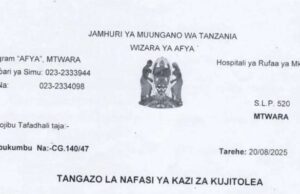Applying for sports and sports scholarships in Europe can be a competitive process, but it offers great opportunities for athletes to pursue higher education while continuing their athletic careers. Here is a general guide to help you navigate the application process:
1. Identify Potential Subjects
– Research Universities and Colleges: Start by researching universities and colleges in Europe that offer sports scholarships. Some universities have special programs for athletes.
– Check Sports Associations and Federations: National and regional sports associations or federations sometimes offer scholarships or can guide you towards opportunities.
– Search for Specific Subjects: Some subjects are focused specifically on certain sports, levels of competition (e.g., national or international athletes), or academic fields.
2. Eligibility Criteria
– Academic Requirements: Most sports scholarships require a certain level of academic achievement. Check for specific GPA or academic qualifications required.
– Athletic Performance: Scholarships often require you to have participated at a certain level (e.g., regional, national or international competitions). You may need to provide records or achievements as proof.
– Nationality and Residency: Some scholarships may only be available to EU citizens or residents of specific countries.
3. Prepare Your Application Materials
– Athletic Portfolio: Prepare a portfolio that highlights your athletic achievements, including records, medals, certificates, and references from coaches.
– Academic Records: Collect your transcripts, certificates, and any other academic documents.
– Personal Statement: Write a personal statement describing your athletic and academic goals, and how the scholarship will help you achieve them.
– Letters of Recommendation: Get letters of recommendation from coaches, teachers, or counselors who can speak to your athletic ability and academic ability.
4. Application Process
– Apply to a University/Program: Some scholarships require you to apply to a specific university or program before applying for the scholarship.
– Submit Scholarship Application: Follow the application instructions carefully. This may include filling out forms, submitting documents online, or sending them by mail.
– Interviews and Tests: Some courses may require interviews or game tests. Be ready to show your abilities.
5. Deadlines
– Check Deadlines: Be aware of deadlines for college applications and scholarship applications. These can vary greatly across Europe.
6. Additional Funds
– Consider Other Sources: If you don’t get a full scholarship, consider applying for scholarships, grants, or financial aid to supplement your funding.
7. Language Requirements
– Language Proficiency: Make sure you meet any language requirements, as most European programs require proficiency in the language of instruction (e.g., English, German, French).
8. Consult with Experts
– Advisors and Coaches: Talk to professional advisors, coaches, or educational advisors who specialize in sports scholarships in Europe.
Resources to Explore
– Erasmus+ Sports Programme: Provides funding opportunities for education and sports.
– European University Sports Association (EUSA): They can provide information about scholarships and competitions.
– University Websites: Many universities have dedicated sports scholarship sections.
Applying for a sports scholarship requires careful planning and preparation. Start early, and make sure all your documents are in place to increase your chances of success.

















Your writing has a way of resonating with me on a deep level. I appreciate the honesty and authenticity you bring to every post. Thank you for sharing your journey with us.
f6l6u9
10m36n
nl12ii
fel3nh